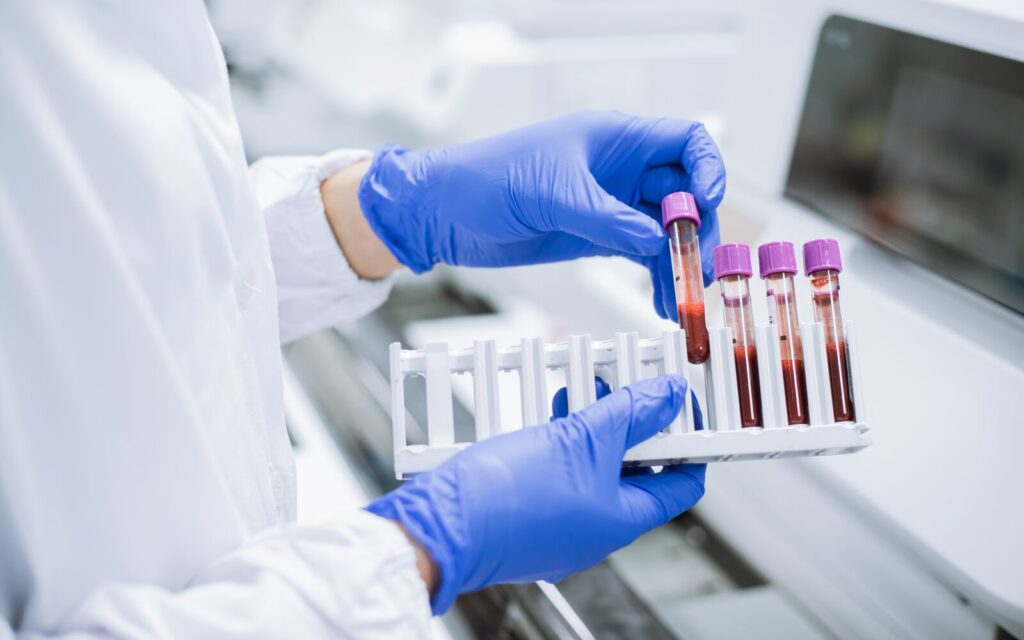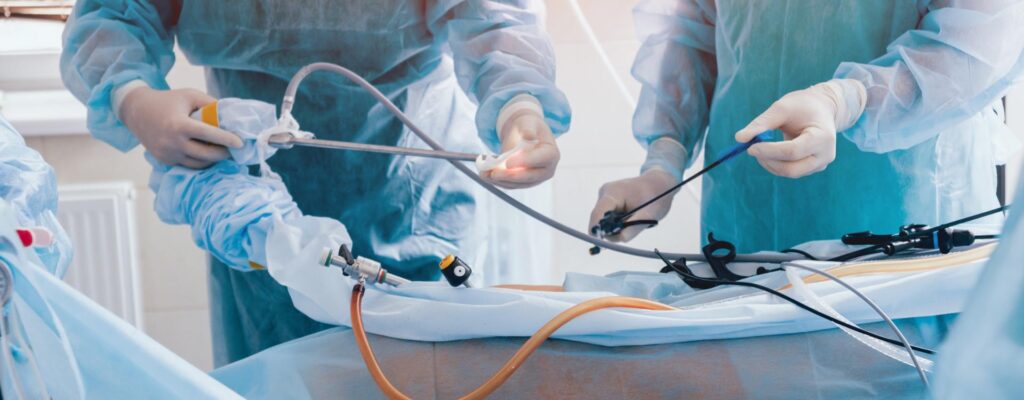Department of Hematology



VishwaRaj Hospital is one of the very few hospitals in the region to have a Centre for Clinical Haematology. The centre offers diagnosis, evaluation, treatment and management of all types of blood disorders.
[read more]Clinical Haematology is a super specialty dedicated to the management of blood disorders. And a Clinical Haematologist provides treatment to adult patients with hematological disorder (whether benign or malignant). The clinical hematologists at VishwaRaj Hospital routinely manages the patients with aplastic anemia, hemophilia’s, and hematological malignancies.



Our Approach to Hematology Patients
Our expert team of haematologists, nurses and technicians are trained in order to provide the best services to our patients at par with best centres in the country. We aim to deliver affordable and quality treatment while maintaining low mortality and morbidity.
Infrastructure
The Centre for Clinical Haematology at VishwaRaj Hospital offers a complete range of services for the diagnosis and management of patients with blood disorders, including cancers of the blood.
[read more]From bleeding disorders such as haemophilia, blood clots to blood cancers such as leukaemia, this department offers comprehensive treatment for every kind of condition. We have an experienced team of hematologists that have years of experience in treating blood disorders. The Centre also provides comprehensive laboratory and clinical services, along with high-end lab tests.
Treatment and Services
Your doctor may recommend you to a haematologist when the components of blood are affected like red or white blood cells, platelets, lymph nodes, bone marrow, blood vessels, or spleen. Some of these blood diseases are as follows:
Sepsis is a potentially life-threatening condition which occurs when the body’s immune system damages its own tissues. Sepsis may progress to septic shock or a dramatic drop in blood pressure can lead to severe organ problems. Early treatment can improve the chances for survival.
It is a serious blood problem in which the clotting factors in the blood reduce resulting in the inability of the blood clotting. It can lead to excessive bleeding during the injuries.
Leukemia is cancer of the blood-forming tissues, including the bone marrow and the lymphatic system. Leukemia usually involves white blood cells. There are various risk factors of Leukemia like smoking, genetic disorder, high exposure to radiation, etc.
Anaemia refers to a condition where the body has a low number of healthy red blood cells. Anaemia also referred to as low haemoglobin, can make you feel tired and weak.
It is cancer of the lymphatic system (lymph nodes, spleen, thymus, bone marrow). The treatment of lymphoma depends on its type and severity.
Department Of General Laparoscopic Surgery


All About General Laparoscopic Surgery
It is a minimally invasive surgery and a low-risk surgery that only requires small incisions to perform the surgery. Through these small incisions, a surgeon can examine and look at the organs by using a device called a laparoscope.
The first thing that comes in our mind after hearing the word surgery is pain, blood and wounds. But, don’t worry, not all the surgeries are painful and involves blood loss. Thanks to the advancement in the medical science that laparoscopy surgeries came in.
During a laparoscopy surgery, a surgeon makes a small incision near the belly button. Through this incision, he inserts a laparoscope, with the help of which high-resolution images can be seen on the video monitor. The incisions made cause no pain and very less blood loss. The images that are formed helps a surgeon to know about the exact underlying problem.
Laparoscopy has many benefits over open surgery in cases like splenectomy, cholecystectomy and esophageal surgery. It is a completely safe and quick surgery in which deep tissue heals within two months. The patient gets discharged on the same day sometimes and even the scars heal quickly.
Laparoscopic Procedures
- 1. Hernia Surgery - Hernia is a condition in which any organ or any tissue protrudes or bulge through the abdominal wall. A hernia is of many types, but the most common type is the abdomen or groin. It can be seen when the organ or tissue bulges out of the skin and the area swells. A hernia also results in pain. Now in the need of a surgery, technology like laparoscopy has eliminated the need of making big incisions and doing open surgery. With the help of laparoscopic surgery, a hernia can be treated with small incisions.
- 2. Appendectomy - It is a surgical procedure to remove an infected appendix. Appendicitis is a condition in which the appendix gets infected because of some viral infection in the digestive tract. Now, with the help of laparoscopic surgery, a number of incisions are made and with the help of some instruments, the infected appendix is removed.
- 3. Anti-Reflux Surgery - It is a surgery that is used to treat gastroesophageal reflux disease. This is a surgery used in cases when medicines don't work. In this surgery, small incisions are made and an effective valve mechanism is used at the bottom of the esophagus. This surgery prevents the acid reflux from flowing up from the stomach to the esophagus.
- 4. Gallbladder Removal - A gallbladder produces bile to absorb the food nutrients. When a small crystal becomes enlarged, they can block the flow of bile juice and result in gallbladder diseases. With the help of laparoscopic surgery, a gallbladder can be removed with inserting small tools through a single incision.
General Laparoscopic Surgery Services At VishwaRaj Hospital
Services
-
1. Diagnostic Laparoscopy
- A procedure wherein doctors insert a fibre-thin telescope into the abdomen through small incisions to examine organs inside the abdomen or pelvis -
2. Laparoscopic Surgery
- A procedure that involves operating upon conditions by the insertion of a laparoscope and surgical tools through micro incisions in the abdomen -
3. Single-incision Laparoscopic Surgery
- Laparoscopic surgery performed through a single incision
Infrastructure at Laparoscopy Department
In the department of Laparoscopic Surgery at VishwaRaj Hospital, we have a team of well-trained and experienced surgeons who have performed several Laparoscopic surgeries together. We use the latest technologies and machines in order to get the best and accurate results and reports. Our surgeons use the latest technologies and equipment to perform laparoscopic surgeries.
We use the latest laparoscopes in order to get clear images of the underlying conditions. We have advanced surgical rooms where all the different types of laparoscopic surgeries are performed by our expert laparoscopic surgeons and trained nurses.
Our Expert Doctors- General Laparoscopic Surgery Department
Dr. Shashank Adgudwar
General & Laparoscopic Surgery
Tuesday Thursday & Friday- 10am to 4pm
Dr. Hemant Choudhari
Vascular Surgery
Monday & Thursday – 1pm – 2pm
Let Us Book Your Appointment with Best Doctors
TIPS TO GET PREGNANT IN WOMEN WITH PCOS
PCOS, also known as polycystic ovarian syndrome, is becoming increasingly prevalent as a significant lifestyle-related condition among young adults. In India, approximately one out of every five women suffer from...
Read More

Google Reviews
Our Health & Diagnostic Packages
- Blood Urea Nitrogen (BUN)
- Serum Alanine Transaminase (SGPT)
- Serum Alkaline Phosphatase
- Serum Aspartate Transaminase (SGOT)
- Serum Bilirubin (Total, Direct & Indirect)
- Serum Creatinine
- Serum Electrolytes
- Serum Protein
- Thyroid Profile Total (T3,T4&TSH)
- Vitamin B12
- Vitamin D
- PAP Smear
- Haemogram (Cbc)
- Dental Consultation(Package)
- Dietician Consultation (First Visit)
- Obs & Gynae Consultation(Package)
For detailed information contact us
- 24/7 Support Team: 020 6760 6060
- 24/7 Support Team: 020 6760 6060
Other Departments


Dr. Abhijeet Baheti
Haematology
MBBS, MD(Med), DM (Hematology)






